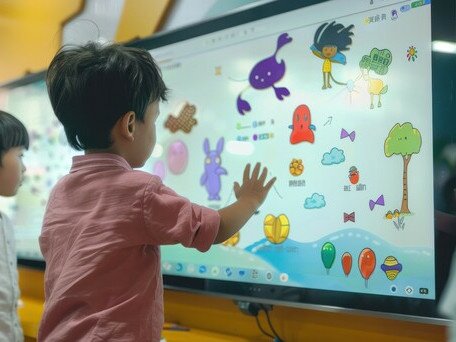Parental Problematic Use of Smartphones and Child Internalizing Symptoms and Externalizing Behaviors: Towards a Comprehensive Model
- 项目计划:
- 优配研究金
- 项目年份:
- 2022/2023
- 项目负责人:
- 林俊彬博士
- (幼儿教育学系)

More and more people use their smartphones nonstop, finding it hard to refrain from using their mobile devices even in the middle of tasks or in the presence of others.
Research has been testing how such problematic use of smartphones may affect individual adjustment, but little work has been conducted on how parents’ problematic use of smartphones may affect the adjustment of their children. In the early years, two broadband indices that underlie child adjustment are internalizing symptoms (e.g., depression, anxiety, psychosomatic complaints) and externalizing behaviors (e.g., inattention, aggression, conduct problems).
Therefore, we proposed to use a 3-wave panel design to examine whether fathers’ and mothers’ problematic use of smartphones are longitudinally associated with their children’s internalizing symptoms and externalizing behaviors in early childhood, and whether such associations are mediated by four different family processes. Integrating an under-involvement hypothesis, a distraction hypothesis, a distress and hostility hypothesis, and an active learning hypothesis, we will examine whether parental problematic use of smartphones may increase child internalizing symptoms and externalizing behaviors by reducing parent-child interactions in general, distracting parents while interacting with their children, increasing parents’ anger and hostility toward their children, and increasing children’s own use of smartphones.
On three occasions over 2 years, fathers and mothers will independently fill in questionnaires and daily diaries on their smartphone use and parenting practices. Children will be individually interviewed, completing tasks that reveal their internalizing symptoms and externalizing behaviors. Class teachers will also fill in questionnaires on the internalizing symptoms and externalizing of children. Multilevel cross-lagged models will be used to examine whether increases in fathers’ and mothers’ problematic use of smartphones uniquely predict increases in internalizing symptoms and externalizing behaviors of their children, and test decreases in parent-child involvement, increases in parents’ distraction during parent-child interactions, increases in parents’ anger and hostility, and increases in parents’ use of smartphones to calm their children as mediators.
The proposed study is important at both theoretical and practical levels. Theoretically, it will move the field forward by developing a comprehensive framework that illustrates how parents’ mobile technology use may affect their family relationships and the adjustment of their children. Practically, it will address whether parents should regulate their use of smartphones in the absence and presence of their children, and whether children’s own use of smartphones at times of distress does more harm than good to them in the early years.








